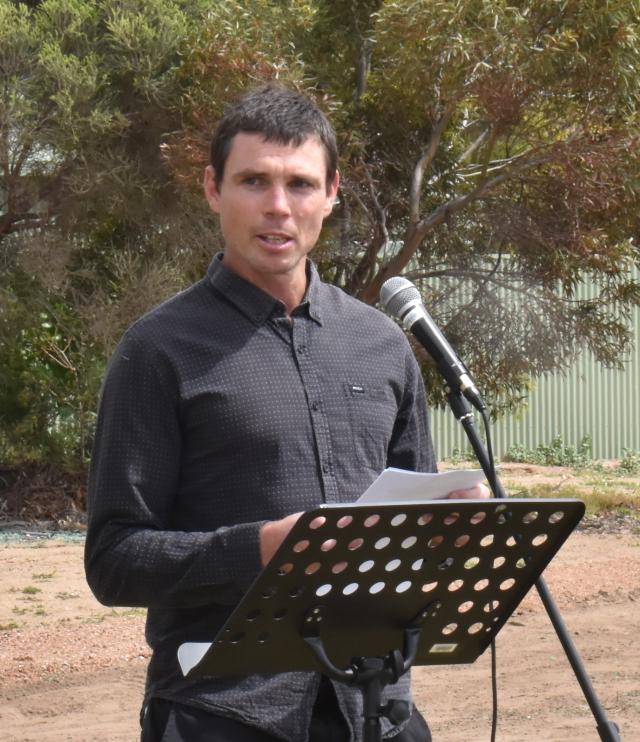Elliston District Council did not succeed in getting other Eyre Peninsula councils to back a motion calling for measures to protect swimmers and surfers from sharks.
Several great white shark attacks on the West Coast in 2023 prompted the council to put the topic on the agenda for the Eyre Peninsula Local Government Association meeting last Friday in Wudinna.
The association opted to hold a workshop for its members on the topic on Thursday to better inform them about sharks and related activities.
However, association president Dean Johnson said members tabled the motion but did not vote on it at Friday’s meeting.
“There was a recognition we need to keep working through the issue,” he said.
“We garnered a lot of information through [the workshop]. There was discussion on shark behaviour and cage diving.
“There was no decision reached and those motions just sit on the table.”
Elliston mayor Andrew McLeod put a motion already passed by his council on options for reducing the risk of shark attacks.
It called for the association to condemn the use of berley and teaser baits to attract and feed great white sharks to attract sharks for cage diving operations.
Those at the workshop heard a presentation from the Shark Mitigation Taskforce’s Ben Gramola, Primary Industries and Regions fisheries and aquaculture director Michael Drew and Department of Environment and Water’s Tim Hall.
Flinders University Marine and Coastal Research Consortium director Professor Charlie Huveneers spoke on what he had learned from more than 15 years of experience in shark and ray ecology in relation to shark bite mitigation measures and sustainable wildlife tourism.
Those there also heard Senator Peter Whish-Wilson – who was the chairman of the 2017 Senate Inquiry into the efficacy and regulation of shark mitigation and deterrent measures – give an overview.
Mr McLeod said Eyre Peninsula people from all its councils entered the water and were therefore at risk of shark attacks, even if they lived in a landlocked council.
He had hoped for a combined association voice in addressing the matter to give a “stronger argument for change to take place”.
“The risk of shark attacks reduces the number of tourists visiting many locations throughout the coastline of the EP and contributing to their local economies,” he wrote.
“The physical and mental health of people throughout the EP is impacted when being deterred from entering the water due to the risk of shark attacks.”
Mr McLeod said individual councils and the association could provide feedback on “measures that mitigate the risk of shark attacks”.
He asked members to consider a “scoping paper” if they wanted to know more before committing.
“We know that people are being mutilated and killed by shark attacks on the Eyre Peninsula and that these attacks have increased in frequency,” he said.
“Success looks like our voice being heard by state government and its relevant departments to bring about change by implementing measures that reduce the risk of shark attacks.”
He said the implication of not addressing the matter was more people being harmed or killed and suffering mental trauma.
“These attacks bring to those who witness them, more impact on people’s physical and mental health by being deterred from water activities and a downturn in tourism that is spread extensively throughout the peninsula.”








